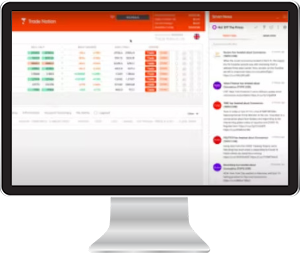Pepperstone is a leading online forex and CFD broker known for its provision of advanced trading...
Featured Content
The Craziest Stock Stories of Recent Years: From 50x...
Are David Hunter’s Predictions and Market Forecasts...
Inflation, Interest Rate Hikes and the Yield Curve...
What is Tiger Global Management? What is their History?
What Tulipmania Teaches Us About Speculative Bubbles
How MicroStrategy Grows Its Crypto Money Tree With...
Price Action Trading
Long Term vs Short Term Trading
Is short term trading worth it? In the current volatile market conditions probably yes. But is it...
What is Price Action Trading?
Price Action Definition and Explanation Price action trading is a method of trading the financial...
Price Action Strategies
Each trader has his own methodology – however, this is one that has worked for me for over 15...
RIP Charlie Munger. Best Memorable Quotes ✅
RIP Charlie. Absolute legend. He is gone but his knowledge will forever be passed on… Sad...
Speculative Bubbles and Easy Money: Lessons from the Crypto Craze
Love the way people think the rise in crypto related assets proves the thesis behind them. How many...
A Story on SPACs and How Far They’ve Crashed and Burned
The most popular SPACs of 2022…and how far they’ve crashed and burned. SPACs –...
Using CFDs to Trade and Invest!
Contracts for difference offer all the benefits of trading shares without having to physically own them. Contracts for difference (aka CFDs) mirror the performance of a share or an index. A CFD is in essence an agreement between the buyer and seller to exchange the difference in the current value of a share, currency, commodity or index and its value at the end of the contract. If the difference is positive, the seller pays the buyer. If it is negative, the buyer is the one who loses money.
The leveraged derivative products allow investors to speculate on price movements without needing to own the underlying asset. This is because contracts for difference are traded on margin, and the profit/loss is determined by the difference between the buy and the sell price. Because contracts for difference trade on margin, investors only need a small proportion of the total value of a position to trade.
CFDs also mirror any corporate actions that take place. The owner of a share CFD will receive cash dividends and participate in stock splits. CFDs are not suitable for 'buy and forget' trading or long-term positions. Each day you maintain the position it costs money (if you are long), so there is a time when CFDs become expensive. For short-term trading they have advantages, provided you get the markets right. But be prepared at some economic stage to cut the position.
Contracts for difference (CFDs) are instruments that offer exposure to the markets at a small percentage of the cost of owning the actual share. This allows the investor to buy or sell an instrument, which usually costs only 10 per cent of the price of the underlying share. It offers great leverage opportunities.
Commission is normally charged at 0.10% of the contracts for difference contract face value on both opening and closing a transaction. Some brokers use real prices with no hidden charges added to the bid/offer spread, and fees are levied separately. Others claim to offer commission-free trades, but the cost is usually factored into the spread.
The capacity to short assets also offers investors the possibility for pairs trading, where a trader buys a share and, at the same time, sells exactly the same amount of another share, usually in the same sector. The expectation is that the long share will outperform the short one. Here, you are betting on the relative performance of the two shares rather than their actual performance.
Contracts for difference provide an excellent vehicle for short term trading strategies and are the preferred vehicle amongst hedge funds and professional traders. Trading the UK stock market through more traditional means is both cost prohibitive and cumbersome. Financial spread betting enjoys a higher growth rate, and acts as an effective entry level product, allowing the individual a lower level of financial commitment. However, ultimately the more professional player will be unwilling to trade indefinitely on someone else's prices. Current estimates of CFD activity suggest that approximately 10-15% of total daily transactions on the Australian Stock Exchange are now backed by CFD trades. In the UK it is estimated that CFD-backed trades account for approximately 25-30% of equity trades on the London Stock Exchange.
You should be aware, there are two different types of contracts for difference providers, one is more like a traditional spread better where you are trading with the CFD provider and have to trade on their prices. With the other provider, your contracts for difference orders or more strictly the hedge for your CFD orders is sent directly to the LSE order book. With the second provider you can send a limit order to buy on the bid / sell on the ask and avoid paying the spread if someone should decide to hit your bid / lift your offer. The first type of provider is more prevalent and will normally charge a lower commission, but you still have to deal with the normal spread betting bias issues there. "Proper" CFD providers like eTrade typically charge more in commission. With the spread betting type CFD the prices you trade on as the providers, with the direct CFD you are dealing on live prices from the market. It is important to understand the distinction.








































